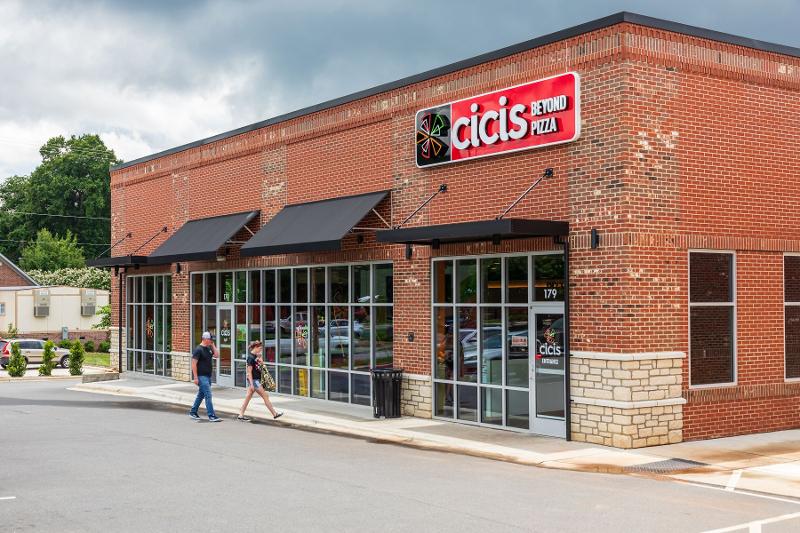CICI’S BUYERS ARE BETTING ON THE CHAIN’S FUTURE
The owners of Roy’s and Mooyah Burgers are teaming up on an effort to buy the pizza buffet chain out of bankruptcy.

Chris Dharod doesn’t believe customers will avoid eating in restaurants forever and he has some pretty good proof in the form of the 70 Applebee’s locations he operates. “Our Applebee’s in Texas yesterday actually comped positive,” he said. “Our Texas Applebee’s are only down in the single-digit range.”
This is why Dharod’s company, SSCP Management, is working with Anand Gala, a Famous Dave’s franchisee and the owner of Mooyah Burgers, to buy Cici’s Pizza out of bankruptcy. Their partnership, D&G Investors, acquired Cici’s $82 million debt in December and has a deal to convert that debt into equity during the bankruptcy process. A federal bankruptcy court must still approve the deal.
“You can’t replace eating out,” Dharod said. “It’s one of the things we do for fun. In Texas we don’t have mountains, a beach or skiing. Our biggest source of entertainment is eating out.”
Cici’s has been shrinking since the previous recession—it filed for bankruptcy with just over 300 locations, or about half of the restaurants it had at its peak in 2009.
The pandemic has been especially tough on buffet chains as dine-in service disappeared and many states limited the ability of customers to get their own food. Cici’s managed to get through the worst part of it with a series of cost cuts, but the sales challenges hurt the company’s liquidity. It defaulted on a loan in August and ultimately put itself up for sale.
Dharod said that Cici’s has a “good business” that was “overleveraged” and then dealt with the tough hand of the pandemic.
He said Cici’s had a good strategy in place before quarantine, and its franchisees were profitable.
“Pre-COVID there was a really nice business here,” he said in an interview. “We think we can help them get their margins into the teens, maybe even the mid-teens, by doing small, simple things.”
Food costs are in line and operators have fair rents. “The returns for franchisees are great,” Dharod said. “The unit economics are good. You can get nice returns on new units.”
It’s not uncommon for franchisees to acquire brands, though the trend appears to be increasing in recent years—noted by SSCP’s deal for Roy’s a few years ago and Gala’s Mooyah acquisition, in addition to the purchase of Taco Bueno by large Dallas franchisee Sun Holdings.
Dharod said his company is in an acquisitions mode and hinted this won’t be the last deal it is involved in. SSCP does not have a lot of debt, particularly when compared with a lot of other franchisees, and that could help fuel other deals.
If the Cici’s deal is approved, Dharod noted that the company would be operated as a separate entity from the investors’ other operations.
“The plan is to help it get back to the business it once was,” he said. “It was just about a year ago. It wasn’t five years ago. The model still works.”
But that model banks on consumers returning to dine-in restaurants, willing to eat the chain’s all-you-can-eat pizzas. Dharod believes they will.
“COVID’s not here forever,” he said. “COVID will be gone, and business will return to what it was. There’s still a business there.”




















